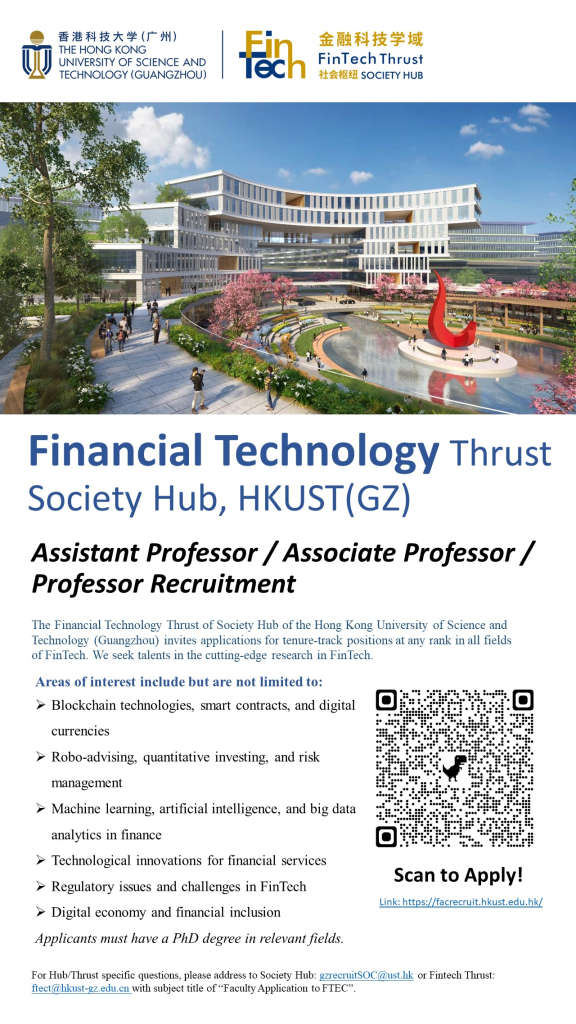
Abstract: By comparing uncollateralized business loans made by a big tech lending program with conventional bank loans, we find that big tech loans tend to be smaller and have higher interest rates and that borrowers of big tech loans tend to repay far before maturity and borrow more frequently. This lending program channels credit to small businesses underserved by banks without incurring excessive risks (even during the COVID-19 crisis). We highlight several mechanisms—screening, monitoring, convenience, and high interest rates—which work together to serve borrowers’ short-term liquidity rather than long-term financing needs, thereby limiting the lender’s risk exposure.

Short Bio:
Assistant professor in Finance at the Chinese University of Hong Kong, Shenzhen. I graduated from the University of British Columbia. My research covers the area of fintech, labor finance, and household finance.







